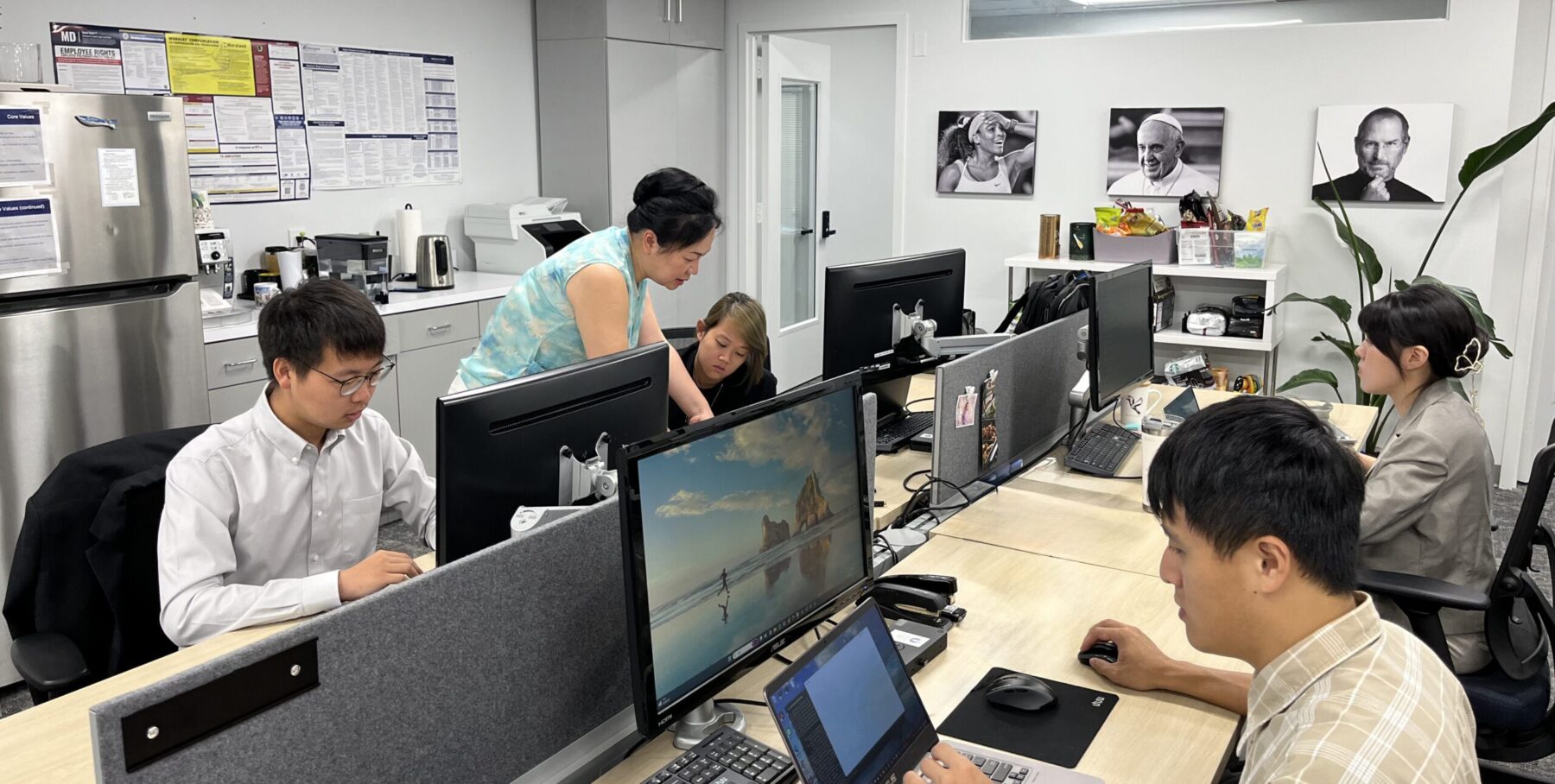AI and Data Science
Our team of data scientists custom builds Artificial Intelligence and Natural Language Processing solutions with a focus on data standards, auto-tagging, and causal modeling, all informed by mission-oriented subject matter expertise.
- Our team includes data scientists and data engineers, and a holistic suite of capabilities from data strategy and data visualization to data governance and emerging technologies.
- We collect, process, analyze, and present large amounts of data to discover underlying patterns and trends for health outcomes studies, program evaluation, survey design & analysis, and performance management.
- We partner with some of the leading data science companies in the world, including Taiwan AI Labs and MUEN, to constantly bring the best of data services to our clients.
Learn More
Digital Transformation
We develop user-centric solutions that provide your organization with cleaner data, more accurate information, and improved outcomes to better connect with stakeholders and the people you serve.
- We support the full development lifecycle, including modernization, cloud, and web and application development/integration.
- We support the transition from legacy systems to modern systems and migration to the cloud. We enforce the necessary levels of security, functionality, and efficiency so government organizations can better serve our country and our fellow citizens.
- We provide Drupal-based web development and O&M. Our Drupal experts develop and maintain world-class digital experiences that deliver mission-critical messages and services for federal agencies.
Learn More
Bioscience & Public Health
DSFederal’s scientists, data analysts, and health researchers bring multidisciplinary expertise in biomedical sciences and public health to solve complex healthcare challenges.
- We leverage data to produce actionable insights that support the federal government in public-health focused missions.
- Our subject matter experts provide objective recommendations and actionable insights to improve public health policies, procedures, and regulations.
- We focus on driving improvements for public health initiatives through program operations support, training and technical assistance, policy review, Al, and machine learning across multiple domains.
Learn More
Business Solutions
DSFederal combines a unique understanding of technology, informatics, and data science with whole systems thinking to craft data-driven strategies for organizations interested in optimizing IT and data for their mission objectives.
- We provide proficient expertise in strategic planning, governance strategy, and policy as well as broad and deep support for financial, grants, and portfolio management.
- Our strong grasp on science, operations, technology, and management frameworks allows us to improve the business processes of clients quickly and seamlessly.
- Our solutions are data-driven. We provide transparency and visibility into program operations through data visualizations and dashboards.
Learn More

